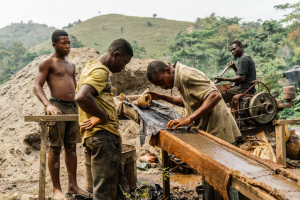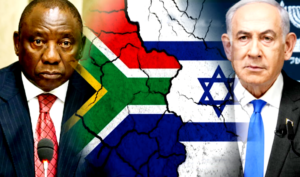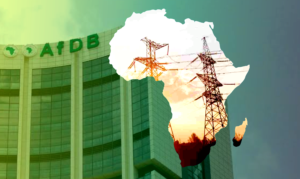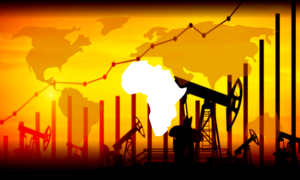Galamsey Crisis Deepens, Testing Ties beyond Business as Ghana and China Trade Blame
Accra, a simmering diplomatic row between Ghana and China has burst into the open, as both governments trade accusations over the rise of Galamsey illegal small-scale gold mining that is leaving scarred forests, poisoned rivers, and fractured communities across the West African nation.
At the heart of the dispute lies Ghana’s age-old struggle to balance its gold wealth with environmental protection, livelihood security, and the country’s growing economic ties with Beijing. Now, as global gold prices climb to record highs, the stakes are even greater, turning muddy pits in remote villages into flashpoints of international tension.

For families in Ghana’s Western and Ashanti regions, Galamsey is not an abstract debate but a daily reality. Farmers wake up to find their cocoa farms destroyed by unregulated mining. Mothers worry as children fall sick from mercury-contaminated water. Community chiefs wrestle with how to preserve traditions while young men abandon farming to chase quick riches underground.
“It is tearing our families apart,” says Ama Mensah, a mother of four from Dunkwa-on-Offin. “My husband used to be a farmer, but now he is in the pits. The money comes faster, but so does the danger. Last month, two boys from our village never came back.”
What once began as a survival strategy for locals has grown into a multi-billion-dollar underground industry, attracting not only Ghanaians but also foreigners and particularly, Chinese nationals are drawn by the promise of the lucrative returns.
Ghanaian authorities have long insisted that Chinese nationals are playing an outsized role in fueling Galamsey. Over the past decade, security operations have repeatedly arrested Chinese miners working illegally in rural Ghana. Officials argue that the influx of sophisticated Chinese machinery such as bulldozers, excavators and high-capacity dredges, have turbocharged illegal mining far beyond the artisanal scale.
“The destruction we are seeing is not from handheld tools but from industrial equipment brought in by foreign actors,” said Lands and Natural Resources Minister Samuel Jinapor. “We cannot continue to lose our rivers and forests because of lawlessness.”
China, however, has pushed back. Its ambassador in Accra recently described accusations against Chinese citizens as “exaggerated and unfair,” urging Ghanaian authorities to strengthen their own enforcement systems instead of scapegoating foreigners.
The dispute has exposed deeper sensitivities in Ghana-China relations. While Beijing remains one of Ghana’s largest trade partners and a key lender for infrastructure projects, the perception that Chinese nationals are linked to Galamsey has sparked public anger, threatening to undermine goodwill built over years of cooperation.
The Galamsey economy sits uneasily alongside Ghana’s formal gold industry, which is dominated by multinational corporations that export billions of dollars’ worth of gold each year. For the government, illegal mining represents a double blow: lost tax revenue and mounting costs from environmental degradation.
Politically, it is even more complex. Crackdowns on illegal mining often provoke tensions in rural constituencies, where livelihoods depend on the trade. Some local chiefs and politicians are accused of turning a blind eye or even taking a cut to secure their votes and maintain influence.
Internationally, the issue threatens to complicate Ghana’s foreign policy balancing act. While the United States and Europe have applauded Ghana’s environmental protection efforts, Accra cannot afford to alienate Beijing, whose loans and investments underpin many of the country’s roads, dams, and telecom networks.
Beyond politics and economics, Galamsey has torn at the social fabric of Ghanaian communities. Rivers once used for drinking and fishing have turned brown with sludge. Traditional festivals that depended on clean water sources have been disrupted. Family disputes arise when young miners return with fast cash, creating social hierarchies that erode community cohesion.
Teachers in mining regions report declining school attendance, as boys drop out to work in the pits and girls migrate to nearby towns to sell food or engage in risky relationships with miners. Health clinics struggle to cope with mercury poisoning, skin diseases, and accidents from collapsed pits.

“It is not just about gold, it is about our future,” says Reverend Kwame Boateng, a community leader in Obuasi. “We are losing our children to this industry, body and soul.”
In Ghana, culturally gold has always carried cultural weight, from the golden regalia of Ashanti kings to the role of the precious metal in rites of passage. Today, that legacy is being stained by polluted rivers and shattered landscapes. Elders lament that the sacredness of the land has been traded for short-term gain, undermining values that once bound communities together.
Meanwhile, the visible presence of Chinese miners has created cross-cultural tensions. Some locals view them as economic opportunists, while others see them as scapegoats in a much larger system of complicity involving Ghanaians themselves.
As both governments harden their positions, ordinary Ghanaians are left to wonder whether the Galamsey crisis will ever be resolved. Calls for stricter enforcement are growing, but so are demands for alternative livelihoods in affected communities. Civil society groups argue that unless young people see viable futures in farming, education, or small-scale regulated mining, Galamsey will persist, regardless of whether foreigners are involved.
For now, the gold glitters but the future looks uncertain. Ghana and China must decide whether they will confront the crisis together or allow mistrust to poison a partnership that goes beyond trade.
As one village elder put it: “Gold has brought us wealth, but also curses. Unless we find a way to mine with wisdom, it will cost us more than we can ever count.”






